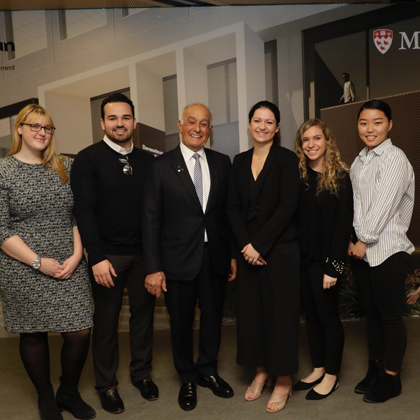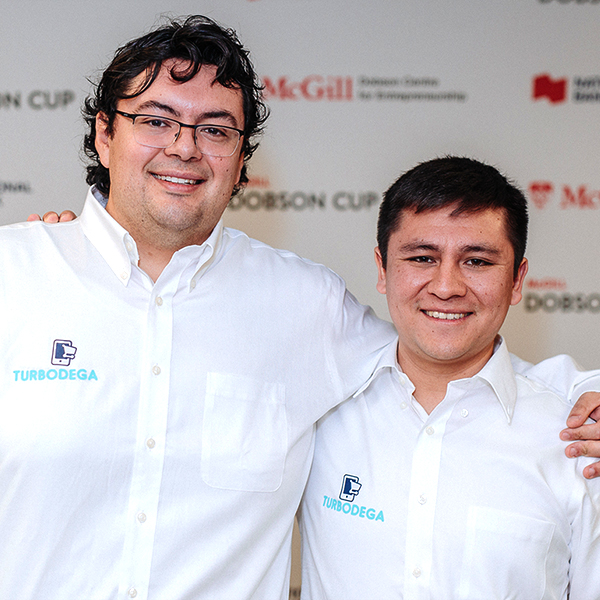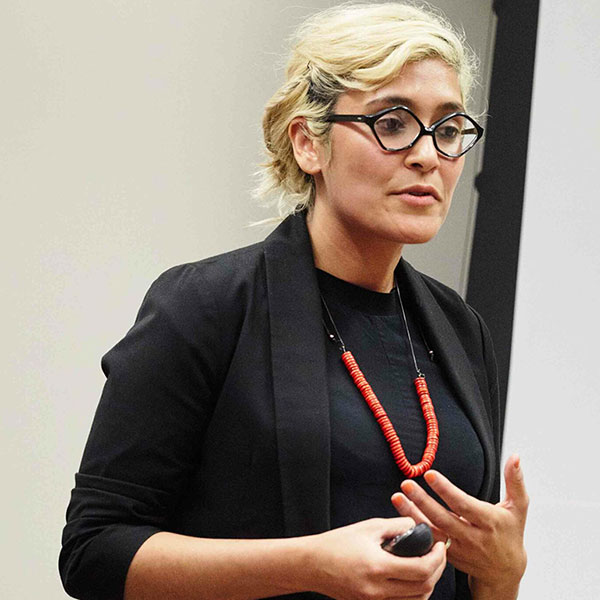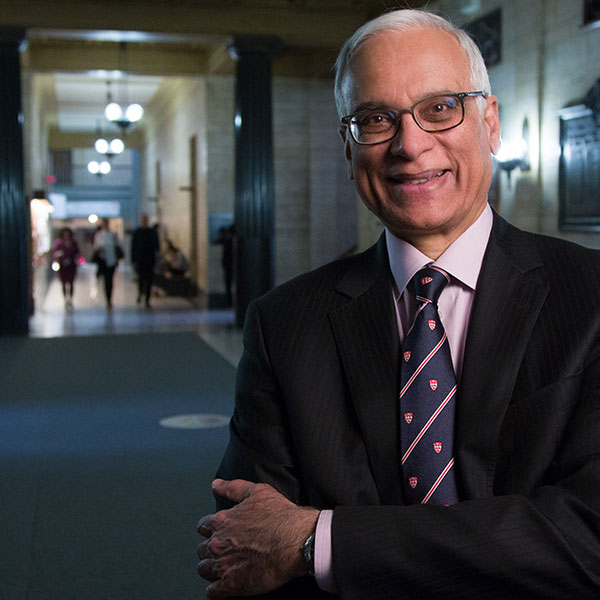The world of retail has been in a non-stop state of upheaval for the past decade. The Bensadoun School of Retail Management, which celebrated its official launch on November 16, expects to play an important role in sorting through the turmoil to make sense of where things are going.
The School also hopes to work with retailers to help customers make healthier, more sustainable, and more socially responsible decisions.
Retailers now have a massively powerful ability to collect customer data, and use it to customize each person’s shopping experience. Most notably, online retailers like Amazon use “recommendation algorithms” to promote specific items based on a detailed analysis of a user’s browsing and shopping history.
Traditional bricks-and-mortar retailers have also upped their data game, gathering information on how shoppers move through stores, what they look at, and what they come back to.
In the retail sector, people commonly use this “big data” to maximize sales. But faculty at the Bensadoun School believe it can also be harnessed for social benefit.
“We want to explore how retail technology can help people to make better choices, like buying healthier food or more sustainable products,” says the School’s academic director, Saibal Ray. “We want to develop a live retail lab where we can address some of these issues.”
The planned retail lab will be central to the strategic ambitions of the Bensadoun School. Occupying the street-level floor of the Desautels Faculty of Management’s Bronfman Building, the lab will provide a flexible space where researchers, students, and companies can use pop-up stores and other experimental retail formats to test new technologies, packaging, supply chain optimization, and customer experiences.
The lab will be one way for the School not only to keep up with the rapidly changing retail sector, but also to help affect the way in which retail evolves. While the School is building relationships with many private companies, they are careful to maintain their academic integrity.
“We are not consultants for hire,” says Ray. “We’re interested in problems with academic importance. We think about big and broad issues, rather than one company’s immediate challenge.”
There is no shortage of corporate partners who support that approach.
Following the $25 million initial gift from the Bensadoun Family Foundation in May 2017, retail-industry leaders have stepped up to support the School’s mission through the BSRM Founder’s Circle, which has raised more than $7.5 million.

Members of the Founder’s Circle include the Apparel Group, Couche Tard, Peerless Clothing, The Rossy Foundation, Saputo, Walmart, Ancapa GmbH (Stent-Torriani Family), CGI, Birks Group Inc. and CloudRaker.
Other companies have expressed interest in partnering with the school for research, recruitment and educational purposes. Ivanhoé Cambridge and Nespresso will be signing on as some of the first BSRM “post-launch” collaborators.
“We are living through a period of tremendous change in retail and to succeed, future industry leaders will need to fundamentally understand consumers’ changing behaviours and expectations,” says Aldo Bensadoun, BCom’64, LLD’12, the founder of the Aldo Group, which operates close to 900 retail stores.
“It is my hope that by working with industry partners and leveraging McGill’s breadth and depth of research in fields such as accounting and finance, as well as others like psychology, artificial intelligence, neuroscience and sustainability, we will succeed in reinventing the future of retail management,” says Bensadoun.
The School opened its doors in September to undergraduate students pursuing a concentration in retail management. Next year, the School will start offering a PhD program, and, subsequently, a master’s program. Graduates will be prepared for academic careers and also for leadership roles in the private sector.
Marie Josée Lamothe, a professor of practice at the School and the former managing director for Google Canada, welcomes the opportunity to support the School in its mission.
“There’s something about a university campus, I find completely inspirational,” she says. “I appreciate the community spirit, the rich and diverse thinking, the emphasis on constant learning. It’s a privilege to work in this environment, and it’s also an opportunity to share some of the knowledge I’ve acquired over the years.”
She says it’s challenging to prepare students to succeed in one of the most volatile sectors of the economy, where jobs and technology change so quickly. The roles that exist now in the retail sector will likely disappear or transform in just the next few years.
Many retailers are still searching for the right approach to balance the demands for traditional and electronic shopping. New tools are constantly emerging for collecting, interpreting, and using big data. Customers’ expectations and concerns also continually evolve. Shoppers increasingly seek a shopping experience custom-tailored for their own tastes, but are uneasy about handing over private information to profit-making companies.
Lamothe believes the School can play a role in balancing privacy issues with improved shopping. She also sees opportunities to actively apply retail tools for goals other than profits.
“Data has become powerful for any retailer. You can predict what may be of interest to a consumer, and totally personalize recommendations for every individual,” she says. “Personalization can make a big difference in someone’s life. You can bring these ideas to the healthcare sector, the food industry, or non-for-profits.”
The School uses a broad interpretation of retail, including charities, community organizations, banks and airlines in their definition.
Isabelle Bajeux-Besnainou, the dean of the Desautels Faculty of Management, says this expansive approach sets the Bensadoun School apart from other such university programs around the world.
“The School’s global view of retail transcends traditional understanding of the field,” she says. “We are taking advantage of McGill’s international reach to position retailing as a transformative sector with great bearing on the challenges of our time.”
She says the School is particularly well positioned to have a positive influence on areas such as health and nutrition, sustainability, and the changing nature of jobs.
The School has already hosted a number of academic conferences, including one that focused on “circular economies.” A circular economy departs from the traditional “make-use-dispose model” of a linear economy. Companies focus on reusing, recycling and recovering materials to keep resources in use for as long as possible. Not only is this a more sustainable economic model, it also allows retailers to extract more value from the same resources.
Saibal Ray says there are many ways that profit motives and social responsibility can assist one another.
“The Bensadoun School can provide ways to bring those motivations together,” he says. “Many companies have come to understand that it is in their interest to sell healthier food and lifestyle options, because they might have bigger margins.”
Already, Canadian Tire, Saputo, and several grocery chains are discussing partnerships with the School, an indicator that the retail sector is interested in buying what the Bensadoun School has to sell.
With files from Cynthia Lee


